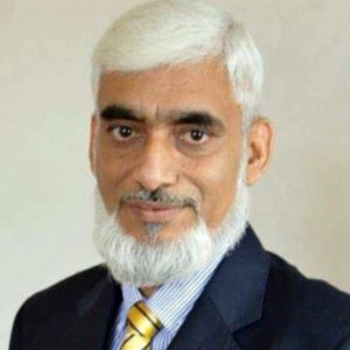A busy 2023 has led to Hassan Qudrat-Ullah, a professor in York University’s School of Administrative Studies in the Faculty of Liberal Arts & Professional Studies (LA&PS), publishing three new books in short succession this past November, covering topics as diverse as systems thinking, supply chain management and sustainable development.
The first of the three, Managing Complex Tasks with Systems Thinking (Springer, 2023), is about improving human decision making and performance in complex tasks. Using a systems thinking approach, it presents innovative and insightful solutions to various managerial issues in various domains, including agriculture, education, climate change, digital transformation, health care, supply chains and sustainability.
Qudrat-Ullah’s second recently published work, a co-edited volume with York University Research Fellow Syed Imran Ali called Advanced Technologies and the Management of Disruptive Supply Chains: The Post-COVID Era (Springer, 2023), explores the cost-effective and efficient supply chain management strategies required to achieve resilience in the post-COVID environment.
“The book follows a didactic approach through which it informs global researchers and practitioners to deal with the most significant insights on future supply chains with a more in-depth analysis of post-COVID opportunities and challenges,” said Qudrat-Ullah. “In particular, it provides an in-depth assessment of disruptive supply chain management in certain industrial contexts and explores various industry 4.0 and industry 5.0 technologies to achieve resilience.”

The final book of the bunch, Exploring the Dynamics of Renewable Energy and Sustainable Development in Africa: A Cross-Country and Interdisciplinary Approach (Springer, 2023), explores the potential of renewable energy sources to promote sustainable development in Africa, with a specific focus on Cameroon, Nigeria, Uganda, South Africa and Algeria. It delves into the challenges and opportunities presented by various renewable and clean energy technologies, including nuclear power, liquefied petroleum gas, bamboo biomass gasification and geothermal energy in addressing the energy needs of African nations. Additionally, it assesses the socio-economic and environmental impacts of renewable energy projects and evaluates their alignment with the African Union’s Agenda 2063 and the United Nations Sustainable Development Goals.
“The book’s interdisciplinary and cross-country approach, as well as its incorporation of innovative concepts like social innovation and bamboo-based development, makes it a unique resource,” said the author.
Originally published in YFile.
